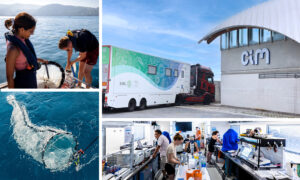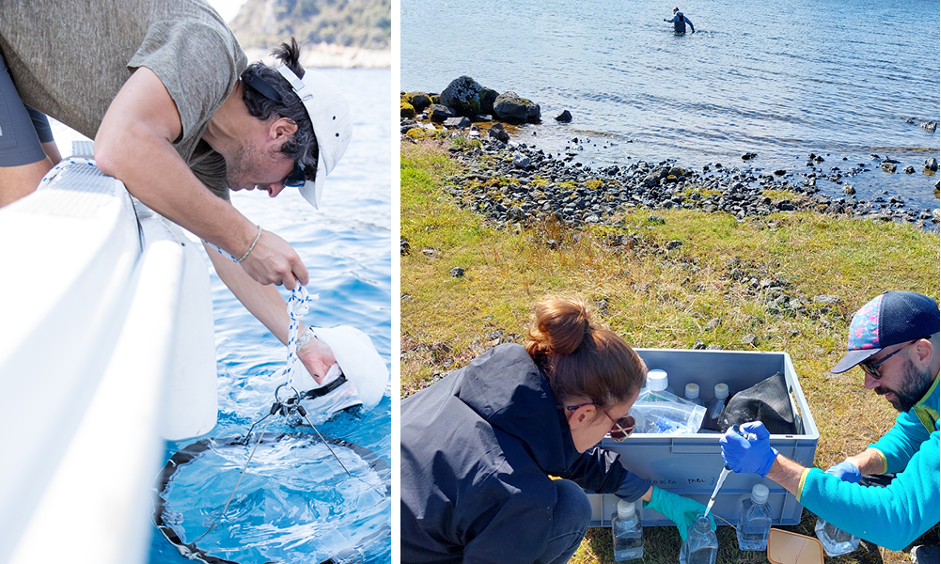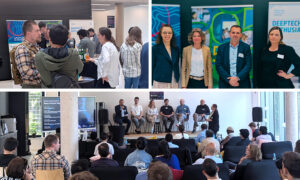
Understanding marine biodiversity across space, time, and human impacts
Europe-wide project studies coastal and marine biodiversity from viruses to whales

Researchers from 12 European countries will meet in Heidelberg next month to kickstart a major interdisciplinary project designed to better understand marine biodiversity and its fate in the Anthropocene.
EMBL is coordinating the BIOcean5D project that brings together 31 research partners to holistically explore marine biodiversity at molecular and organismal levels – from viruses to mammals, across space, time, and human scales (5D).
Biodiversity is essential to sustain marine ecosystems which are, in turn, vital for planetary and human health. But biodiversity is changing at an exceptionally fast pace as marine biota are particularly vulnerable to human activities, and recent surveys of marine ecosystems have revealed a lack of understanding about their abundance and functions.
“Many of the most pressing challenges we face today are global – and that is clearly the case when it comes to the current and future condition of marine ecosystems,” said Edith Heard, EMBL Director General and director of the project. “It is vital that researchers work across borders and traditional disciplines, in order to deepen our knowledge and find ways of addressing biodiversity decline, its principal drivers, and the effects it has on our lives and economy. BIOcean5D is a great example of an international and interdisciplinary collaboration working on some vital questions.”
CNRS research director Colomban de Vargas is the deputy director and scientific coordinator of BIOcean5D.
“The project will build a unique suite of technologies and protocols to sample European coastlines, especially focusing on critical maritime habitats and gathering the new and existing data that will be harmonised and made openly available through international data platforms,” he said. “This will enable the project to inform and build new theories and models of marine biodiversity, as well as provide a portfolio of indicators of marine ecosystem health. Uniquely, the dynamic and functional complexity of marine life at the molecular level will also be analysed for its economic and legal value.”
BIOcean5D will run in parallel with EMBL’s flagship Traversing European Coastlines (TREC) project and the next TaraEUROPA expedition, which seek to obtain the first pan-European assessment of coastal ecosystems using molecular biology tools, by sampling micro- and macroscopic life from water, sediments, soil, and air along the European coast. Sample analyses will be supported by EMBL Mobile Laboratory Services, which will provide access to cutting-edge technologies at the sampling sites.
“The BIOcean5D and TREC projects reinforce each other, extending the partners network and efforts, making it a truly pan-European endeavour by both projects contributing samples and data. In tight collaboration with the project’s partners, EMBL will coordinate, organise, and run the systematic sampling of marine ecosystems at 120 selected sites across European coasts. EMBL will also provide a data hub, which will then be linked to global data repositories and wider efforts to harmonise data,” said Peer Bork, Director of EMBL Heidelberg and one of the project leaders.
De Vargas added: “The work undertaken by BIOcean5D will be truly interdisciplinary, aggregating molecular, organismal, and marine biology with theoretical ecology, econometrics, and social sciences. It will contribute to the long-term preservation of marine habitats and the development of new indicators of marine biodiversity and health. This new data and knowledge will therefore provide vital information for policymakers.”
BIOcean5D has received more than 17 million Euros in total from the European Commission under grant agreement 101059915, and from the Swiss and UK government for Swiss and UK partners.
The kick-off meeting on 11 to 13 January will be hosted by EMBL at its Heidelberg site.


